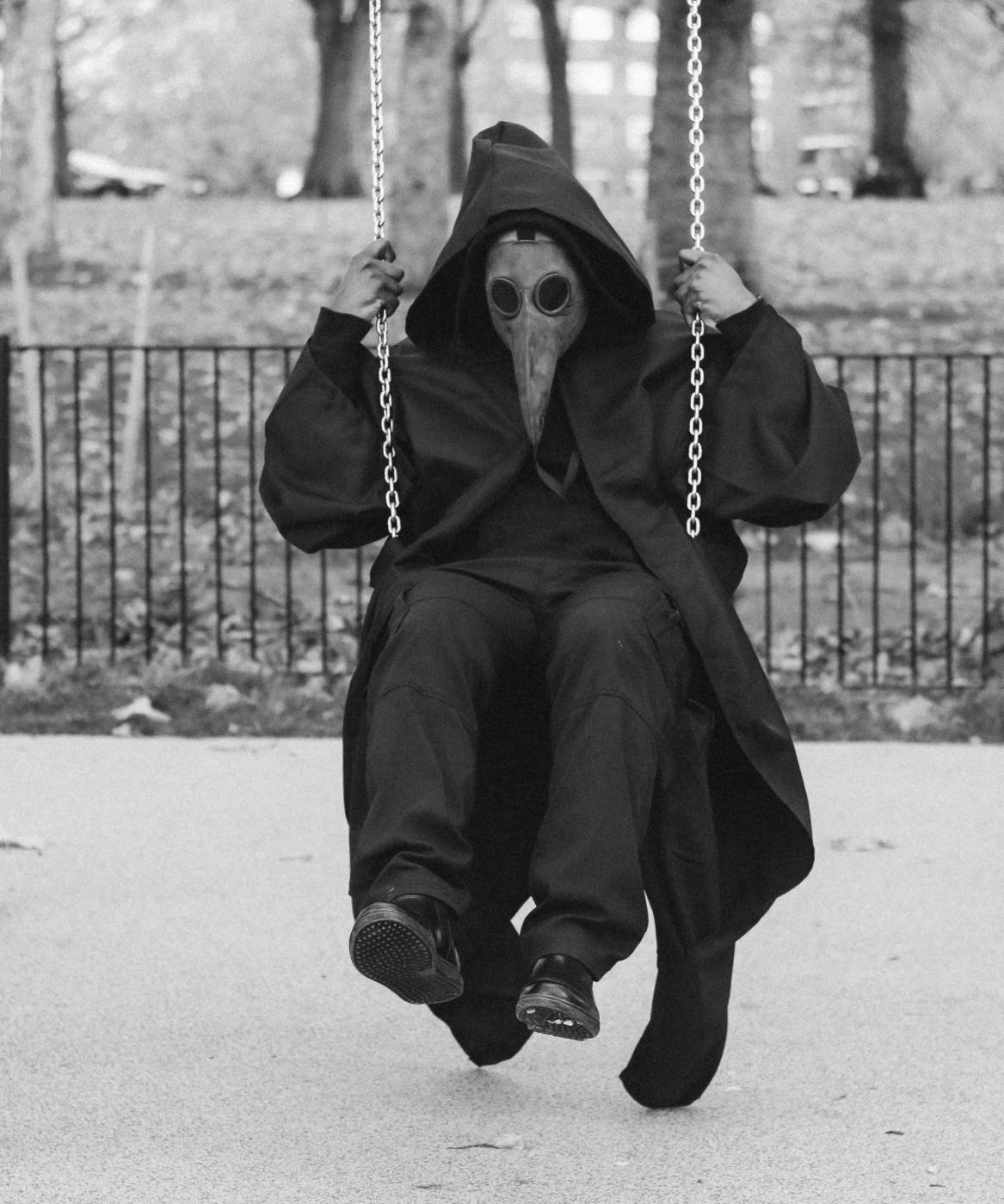
Just like humans, brands have personalities. And just like people, these personalities can vary widely. Some brands are confident and bold, while others are more laid-back and approachable.
As an actor, I sometimes struggle with getting into character. I always begin with a want, but there's more to it than that. When I find myself stuck, I turn to something physical—a walk, a voice, or even a quirky tick that helps me latch onto the character. One of the best techniques I’ve found to break through is using animal imagery.
There’s an old adage that people look like their pets, and surprisingly, it’s often true. The theory is that humans are drawn to familiarity, so we naturally gravitate toward things that resemble us in some way. I take this idea and apply it to building characters. For example, I’ve played Toby Belch in Twelfth Night many times, but the performance that really resonated with me was when I approached him like a bear. A big, noisy bear. I adopted a bear-like walk, kept my hands open like paws, and moved in a way that was distinctly animal. The result? A physicality that was instantly recognizable to the audience.
This technique can be incredibly useful, especially in improv, when you need to grab something quickly and dive into a character. I once had a great time playing a waiter by channeling the physicality of a chicken. I kept my head bobbing, my eyes darting around, and it made the character both funny and dynamic. The possibilities were endless.
So, what if your brand were a person? What kind of animal would it be? And more importantly, what does it say about how your brand connects with its audience?
The Different Types of Branding Personas
Just like humans, brands have personalities. And just like people, these personalities can vary widely. Some brands are confident and bold, while others are more laid-back and approachable. Here are a few different "brand personas" to consider:
1. The Life of the Party
These are the extroverted brands that know how to make an entrance and capture attention. They’re full of energy, never shy away from a challenge, and love to have fun. Think Red Bull—always pushing the limits and encouraging others to do the same. These brands don’t just want to be seen; they want to be unforgettable.
2. The Reliable Best Friend
Some brands are the dependable, no-drama types that always have your back. They might not make the biggest splash, but they’re always there when you need them. IKEA is a perfect example. They’re practical, straightforward, and never let you down when it comes to getting the job done (even if it means hours of putting together furniture).
3. The Quirky Creative
These brands stand out because they’re a little different, and they embrace it. They’re often full of personality, offbeat humor, and creative ideas that others might not dare to try. Ben & Jerry’s is the perfect example, combining humor with an out-of-the-box approach to ice cream, and never afraid to make a statement.
4. The Sophisticated Leader
If your brand is classy and refined, it might fall into this category. These brands exude confidence, intelligence, and elegance. They focus on quality over quantity and know their value. Think Apple—a brand that’s sleek, minimal, and always ahead of the curve, yet carries a certain air of exclusivity and prestige.
5. The Adventurous Spirit
Some brands take risks and are all about pushing the boundaries. They’re not afraid of failure because they know it’s part of the journey. Nike, with its iconic “Just Do It” slogan, encourages everyone to take the leap and push past their limits, no matter how crazy the challenge might seem.
No matter the type, each brand’s persona serves as a tool to help build a connection with its audience. Just as we’re drawn to certain people based on their personalities, we gravitate toward brands that reflect our values, needs, or aspirations. So, how do you figure out which personality suits your brand? Well, it all starts with defining who you want to be and how you want to be perceived.

The Role of Personality in Brand Loyalty
When we talk about brand loyalty, we’re not just talking about repeat customers. We’re talking about something much deeper: an emotional connection that runs so strong, people start to see the brand as part of their identity. This isn’t just about making a purchase; it’s about cultivating a sense of belonging and trust. A brand's personality is a huge factor in this, helping to shape the relationship between a brand and its audience.
Imagine you're faced with two brands that offer the same product. The first one might be functional, but it’s a little bland—there’s no real sense of what the brand stands for, no clear personality. The second brand, however, exudes confidence and has a fun, relatable voice that resonates with you. This brand feels like a friend who gets you—its personality speaks to your values, interests, or even your sense of humor. Which brand would you choose?
It’s no surprise that most people would go with the second one. Why? Because when a brand has a well-defined personality, it taps into something deeper than the product itself. It appeals to our emotions and our desire for connection. Nike, for example, doesn’t just sell shoes. It sells a mindset, a belief that anyone can push past their limits. Coca-Cola, on the other hand, has created a persona of happiness and togetherness, associating itself with moments of joy and celebration. These brands go beyond the transactional—they represent a way of life that their customers want to be part of.
A strong brand personality creates a sense of trust. When you know what a brand stands for, you begin to trust that they’ll be consistent, that they won’t let you down. Think about how many people are fiercely loyal to Apple. Their minimalist, sleek, and cutting-edge persona has created a level of trust that goes beyond the products they create. For many, owning an Apple product isn’t just about functionality—it’s a reflection of who they are. Apple’s consistent personality, which blends sophistication with innovation, has made it a lifestyle choice for millions.
In contrast, a brand that shifts its personality too often risks losing that connection. If a brand constantly changes its messaging or tries to be something it’s not, it confuses its audience. Take Pepsi: over the years, they've tried to reinvent themselves multiple times to appeal to new trends, but those shifts often alienate loyal customers who trusted the brand’s original persona. If a brand’s personality is inconsistent, people start to question whether it’s reliable, and if they can’t trust the brand to stay true to itself, they may move on to something that feels more stable.
Consistency in personality builds a kind of brand “currency” that customers are willing to invest in. That investment isn’t just about dollars; it’s emotional. Consumers who identify with a brand’s persona often form a bond so strong that they feel an almost personal attachment to it. And like any good relationship, the more trust that’s built, the more loyalty grows. People don’t just buy products from brands they trust—they stand by them in the long run.
When a brand aligns its personality with the core values of its audience, it becomes more than a company; it becomes a partner. Take Patagonia, for example. (I know, I know, if you love Patagonia so much, why don’t you marry it??) Their persona is centered around sustainability and environmental responsibility. The brand doesn’t just sell outdoor gear—it has built a community of like-minded individuals who value nature, adventure, and conscious consumerism. Because Patagonia’s personality mirrors the values of its customers, it has created a fiercely loyal base of advocates who are willing to pay a premium for products that align with their own beliefs.
At the heart of it, brand loyalty isn’t just about keeping customers coming back—it’s about creating a meaningful connection that transcends the product. When your brand has a personality that resonates with your audience on a deep level, it becomes an extension of who they are, and they’ll continue to engage with it for years to come.

How to Define Your Brand’s Personality
Now that we’ve explored the importance of brand personas, it’s time to dig into how to define your own brand’s personality. Just like crafting a character for a play or an improv scene, creating a brand personality starts with understanding the essence of who your brand is and how you want to be seen by the world.
Start by asking yourself a few key questions:
1. What Are Your Brand’s Core Values?
Your brand personality should be a reflection of your core values. What do you stand for? Are you about innovation? Community? Sustainability? Quality? Your values serve as the foundation for your brand’s personality, helping guide how you communicate with your audience. Take a moment to think about what your brand believes in—and let those beliefs shape the personality you project.
2. Who Is Your Audience?
Knowing your audience is crucial to defining your brand personality. Are you speaking to young, trend-savvy consumers, or are you connecting with a more mature, sophisticated crowd? Understanding who your brand is talking to will help you determine whether your persona should be playful and fun or serious and professional. If your target audience is all about creativity and self-expression, for example, your brand might adopt a quirky, artistic persona.
3. How Do You Want to Be Perceived?
Think about how you want people to feel when they interact with your brand. Do you want them to feel energized and inspired, like they’ve just met a cool new friend? Or do you want them to feel like they’re engaging with an expert—someone they can trust to provide high-quality, reliable products or services? The way you want your brand to be perceived will influence the tone and style of your messaging, as well as the overall brand experience.
4. What Is Your Brand’s Voice?
Once you’ve got a handle on your core values, audience, and desired perception, think about how your brand would “speak” if it were a person. Is it formal and authoritative, like a professor at a podium? Or is it more casual and conversational, like a friend chatting over coffee? The voice of your brand is an extension of its personality, and it should be consistent across all channels—from social media to customer service.
5. What Animal Would Your Brand Be?
Okay, let’s have some fun with this one. If you’re really struggling to define your brand’s personality, try this exercise: imagine your brand as an animal. Would it be the playful and energetic dog, always ready for action? The wise and steady elephant, with a no-nonsense approach to solving problems? Or maybe the bold and unpredictable cat, always keeping people on their toes? Thinking of your brand as an animal can help you hone in on specific traits that make up your brand’s unique character.
Defining your brand’s personality isn’t just about making your brand more relatable or memorable—it’s about creating a strong foundation for all your marketing efforts. Once you’ve established your brand’s persona, everything from your logo to your advertising campaigns to your customer interactions will flow more seamlessly. So, take the time to think about who your brand is at its core. The clearer you are on your brand’s personality, the more effective and authentic your brand communication will be.

The Benefits of a Clear Branding Persona
Now that you’ve defined your brand’s personality, it’s time to talk about why it matters—and how it can take your branding efforts to the next level. A clear, consistent brand persona has several major benefits that can help your brand stand out in a crowded market, build loyalty, and ultimately drive success.
1. Improved Brand Recognition
When your brand consistently shows up with the same personality, customers will start to recognize it more easily. This is where the magic of branding happens: it’s not just about what you sell, but about how you make people feel when they engage with your brand. A brand persona acts like a signature style that makes your brand instantly recognizable, even before someone reads the name on the product. Just think about the way Coca-Cola’s red and white colors and bubbly personality are instantly recognizable.
2. Stronger Emotional Connections
The more people identify with your brand’s persona, the more likely they are to develop an emotional attachment to it. As we discussed earlier, when a brand's personality aligns with the values and emotions of its audience, it creates a stronger bond. Customers don’t just see a product—they see a brand that represents their own desires, aspirations, or lifestyle. The more a brand resonates on an emotional level, the more likely it is to foster loyalty and repeat business. Think about Patagonia’s commitment to sustainability. The brand’s persona resonates deeply with consumers who care about the environment, which creates a connection that goes far beyond just selling outdoor gear.
3. Differentiation in a Crowded Market
In today’s competitive marketplace, it’s easy for brands to get lost in the shuffle. A unique and well-defined brand persona can be the thing that helps you stand out. When consumers are bombarded with endless options, they’re more likely to choose a brand they can relate to or that feels like it “gets” them. A strong brand personality allows you to cut through the noise, capture attention, and carve out a distinctive space for yourself. Take Apple, for instance—its sleek, innovative, and premium persona has set it apart from countless other tech companies, making it the go-to choice for many consumers.
4. Stronger Customer Loyalty
When your brand is consistent, relatable, and authentic, it builds trust. And trust is a key driver of customer loyalty. People want to buy from brands they can count on—brands that have a clear and dependable personality that they can trust to deliver the same experience every time. A brand that constantly shifts its persona will confuse and alienate customers, but a brand with a consistent personality creates a sense of security. Customers return to brands they know and trust, and they’re more likely to recommend them to others.
5. Easier Decision-Making in Marketing and Design
Once you’ve established your brand’s persona, it becomes a guiding force for all of your marketing and design decisions. Whether you’re developing an ad campaign, designing a new product, or crafting a social media post, your brand’s personality will inform how you approach each decision. A clear persona streamlines the creative process, making it easier to stay on brand and create cohesive, compelling content that resonates with your audience.
In short, a strong, well-defined brand persona isn’t just a nice-to-have—it’s essential for building a successful, long-lasting brand. It creates clarity, fosters trust, and helps your brand make a real impact in the market. So, once you've defined your brand’s personality, make sure you stay true to it, and watch as it helps your brand grow and thrive.
Summing Up
So, if your brand were a person, what kind of character would they be? Would they stride into a room like a confident, adventurous trailblazer, or would they quietly enter as the thoughtful, reliable guide that always has your back? The magic of branding isn’t just about what you sell—it’s about the personality you put on display and the connections you build with your audience.
Just like actors who bring their characters to life through physicality and voice, your brand’s personality needs to be consistently “performed” across every interaction and every touchpoint. This persona isn’t static; it’s dynamic, shaping the way your audience connects with you over time. When done right, your brand’s personality will transcend the product—it becomes part of your customer’s story.
So, next time you think about your brand, imagine it walking into a room. What would it wear? How would it speak? And most importantly, what kind of impression would it leave behind? Your brand's persona could be the difference between making a fleeting impression and building a relationship that lasts.
We’d love to hear your thoughts—drop a comment below and share what kind of character your brand would be. Maybe it’s time to give your brand its own character arc!

